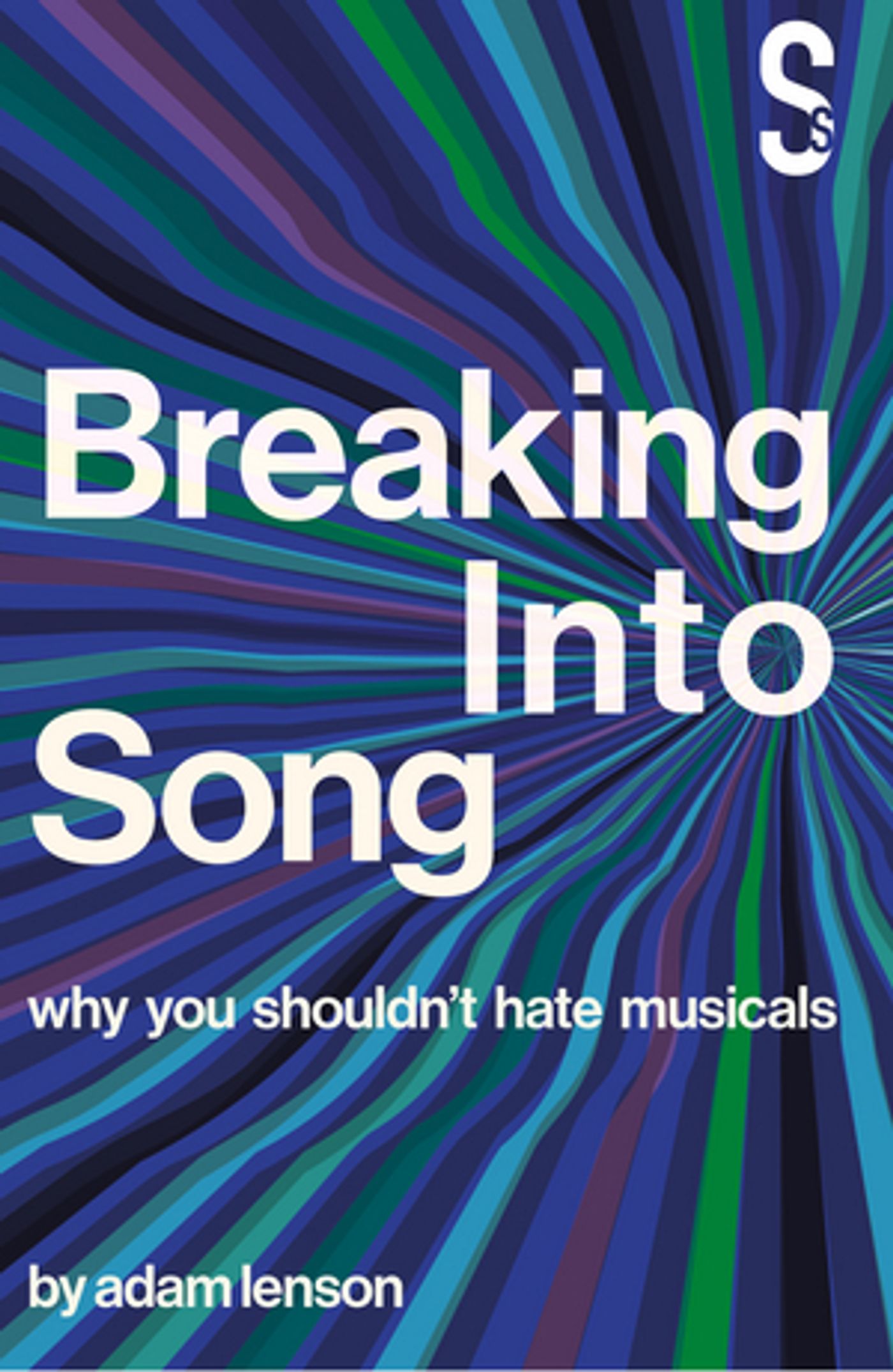Guest Blog: Author Adam Lenson On BREAKING INTO SONG: WHY YOU SHOULDN'T HATE MUSICALS
The book is out now

I never thought I would write a book until I did. In the early days of the pandemic, as theatre went through existential crisis after existential crisis, I found myself on nearly daily Zoom calls with the Australian writer and composer Yve Blake as we chatted about how we might go about developing a stage musical for television. With both our diaries proving unexpectedly empty, we ended up chatting three or four times a week, meeting first thing in the UK morning and last thing in the Australian night.
One day, she asked what else I was up to. I said now seemed like a good time for writers to be writing, and that I was going to try and offer as much support to them as I could during this weird time. As a director and dramaturg of new musical theatre, I spend most of my time talking to, encouraging and supporting writers to write.
In 2015, on the cusp of turning 30, I was experiencing one of my own regular existential crises that come with a career in theatre. A good friend said I should focus on the thing that I cared about most that others cared about least. And the answer that kept resounding in my head was musical theatre.
I have always been thrilled by stories told through song and found myself regularly befuddled at how people undermine the form and make assumptions about it. I knew a lot of talented writers who seemed unable to gain a foothold in the industry. Meanwhile, I kept noticing how the best work seemed stubbornly trapped in the gap between commercial and subsidised theatre's radically oppositional relationship to what musical theatre is or has to be.
So, in March 2020 I had built up a lot of opinions about musical theatre and learnt a lot of lessons about the form. I had been part of many debates and arguments, and had developed a lot of shows and relationships with writers who I cared about a great deal. And that's when Yve Blake said "Why don't you write a book?" I remember replying that I wasn't a writer and she replied "Not yet, maybe."
She showed me my own website which contained four or five programme notes on it. These were written for specific shows but she noticed how they tended to draw out something thematic about musical theatre as a form. "You know if you wrote 30 programme notes then you would have a book?"
She then laid out how it was going to work. I was going to write a list of possible programme note titles - things I could write 2,000-word essays about. Then I was going to write two or three of them a week. I laughed, I was incredulous, but I agreed to try. She became my coach, my pacer, my trainer. She was unrepentant and tough about the goals I would keep. There was to be no excuse. I would write a book.
And miraculously I did. Somehow these small deadlines led to me producing chapters. Chapters about breaking into song, chapters about collaboration, development, form and criticism.
Four months later, as the first lockdown came to an end, Yve told me I had over 50,000 words. "Congratulations. You just wrote a book." It was a bizarre feeling to have got things that had lived inside my brain for years and scooped them out onto my computer. I had spent a lot of time debating, chatting in pubs, replying on Twitter, but this was more substantial, more lasting. And people could read it.
After posting about the project on Twitter, I received a message from the writer Kieran Lynn, who I hadn't seen since I'd directed his short play at the Old Vic New Voices 24 Hour Plays in 2009. He put me in touch with a friend who ran an independent publisher, George Spender at Salamander Street. Through the help of two writers from two different ends of my career, I had written a book and it was now actually going to be published.
Now, I'm not saying I think everything I say in the book is right, or that people should agree with everything I've written. But it's the beginning of a debate that questions how we talk about, care about and support this great medium.
I love musicals. People have said I am perhaps too evangelical, but it is because I believe it is the art form with the greatest disparity between its potential and its perception. Both those who love and hate musicals sometimes are responsible for making assumptions about it. But music and stories are infinite, and musicals can be too if we let them.
Breaking into Song: Why You Shouldn't Hate Musicals is out now from Salamander Street - you can order a copy here
Videos

